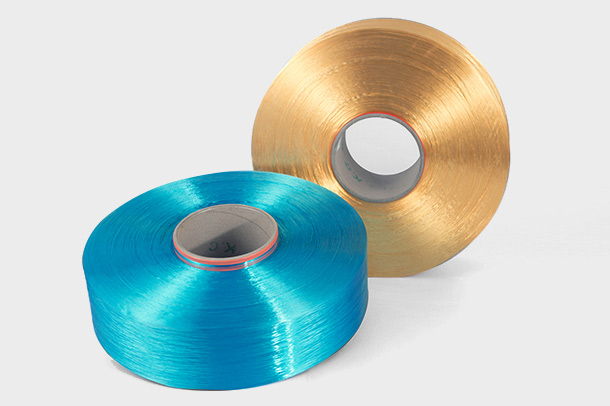Abstract:Polyester yarn refers to the yarn spun from polyester as raw material. Polyester is a kind of fiber made by spinning a p...
Polyester yarn refers to the yarn spun from polyester as raw material. Polyester is a kind of fiber made by spinning a polymer. At present, it mostly refers to the fiber produced by using ethylene phthalate as raw material. Polyester.
By use
1. Weaving yarn: Weaving yarn refers to the yarn used for processing woven fabrics, which is divided into warp yarn and weft yarn. The warp yarn is used as the longitudinal yarn of the fabric, which has the characteristics of large twist, high strength and good wear resistance; the weft yarn is used as the transverse yarn of the fabric, which has the characteristics of small twist, low strength, but softness.
2. Knitting yarn: Knitting yarn is the yarn used in knitted fabrics. The yarn quality requirements are high, the twist is small, and the strength is moderate.
3. Other yarns: including sewing thread, embroidery thread, knitting thread, miscellaneous thread, etc. Depending on the application, the requirements for these yarns are different.
Count of chemical fiber yarn: The thickness of chemical fiber yarn is represented by the metric count "S". Large counts indicate fine chemical fiber yarns, and small counts indicate thick chemical fiber yarns.
4. Spinning process classification: ring spinning, open-end spinning, siro spinning, compact siro spinning, compact spinning, air-jet spinning, vortex spinning, etc.
5. Functional classification: anti-pilling polyester yarn, anti-static polyester yarn, anti-flame retardant polyester yarn.
There are many types of polyester fiber fabrics. The vortex spun yarns of the polyester series spun by Yubang Textile have the structural characteristics of straight and parallel fibers in the middle and twisted outer layers, making the vortex spun yarns relatively pure polyester fabrics. Ring-spun pure polyester fabric has strong moisture absorption effect, and there are many products blended or interwoven with various textile fibers, which make up for the deficiency of pure polyester fabric and exert better service performance. It is believed that such products will have a place in the market in the near future.

